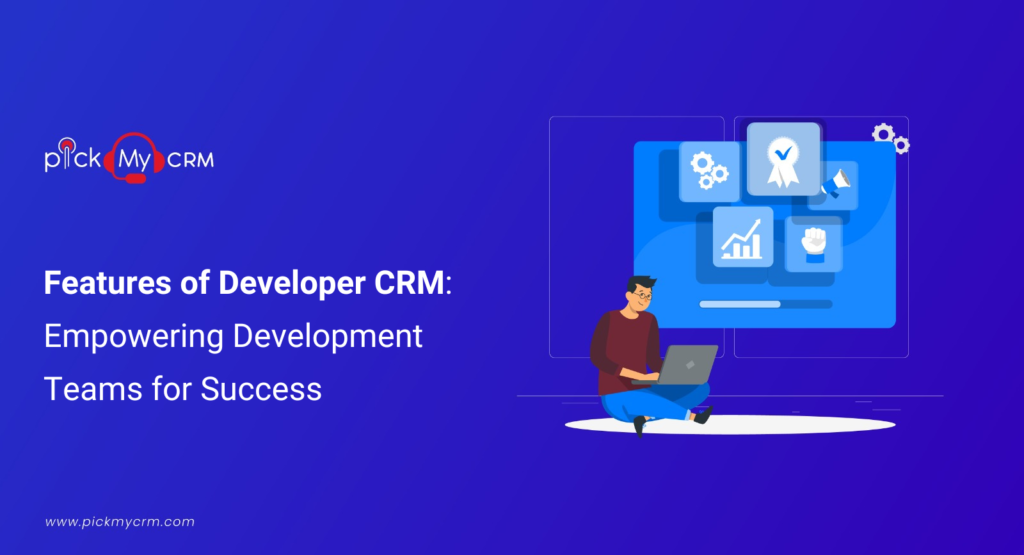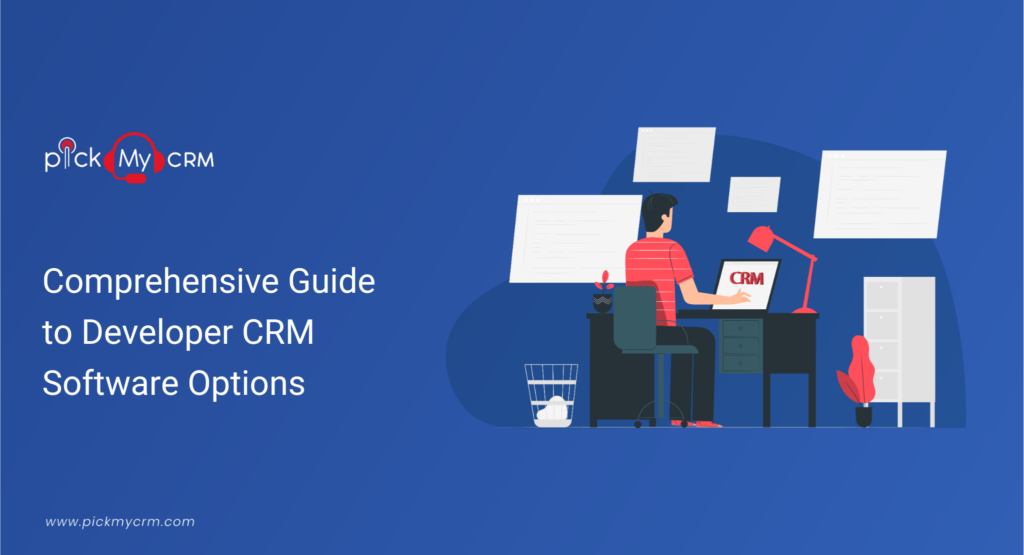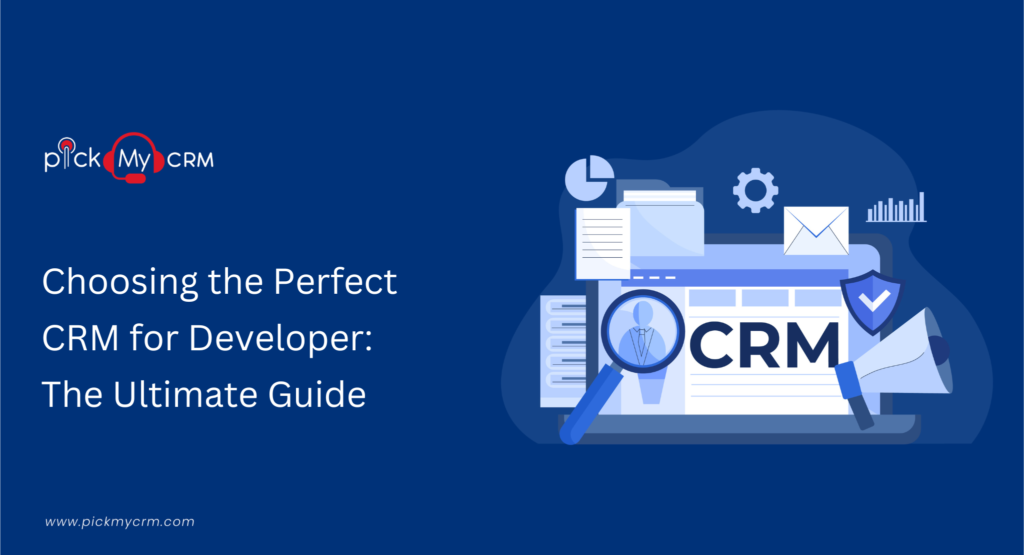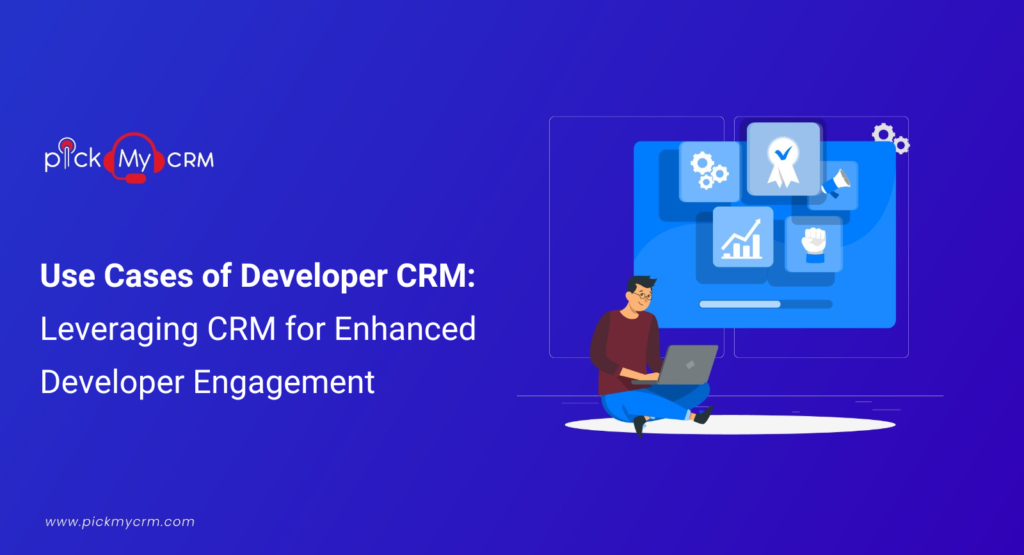Features of Developer CRM: Empowering Development Teams for Success

20 Features of Developer CRM in 2023
Development teams operate in a multifaceted environment where client relationships, project management, and code collaboration intersect. To Navigate this complexity, CRM solutions tailored to developers offer a range of essential features,Contact and Lead Management
Efficiently organize client and lead information, facilitating swift communication and follow-ups. Recent studies show that teams using CRM software have reported a 25% improvement in lead conversion rates.Integrated Development Environment (IDE) Integration
Developer CRMs seamlessly integrate with popular IDEs, Such as Visual Studio Code, IntelliJ IDEA, or Eclipse. This integration allows developers to access CRM functionalities directly from their coding environment.Code Review and Code Repository Management
Developer CRMs offer essential features like built-in code review tools and Code repository management. These tools streamline code review processes, enhance collaboration, and facilitate version control within a unified platform. Teams benefit from a 30% reduction in code conflicts when utilizing CRM-integrated code collaboration features.Continuous Integration and Deployment (CI/CD) Automation
Developer CRMs offer automation features for CI/CD processes. They integrate with CI/CD tools like Jenkins or GitLab CI/CD, allowing developers to automate build, testing, and deployment pipelines.Agile Project Management
Agile methodologies have seen extensive adoption in the software development industry. Developer CRMs in 2023 come equipped with Agile project management features, allowing teams to manage user stories, sprints, and backlogs. These CRMs offer Kanban boards, burndown charts, and sprint planning capabilities to facilitate Agile practices and enhance collaboration.Bug and Issue Tracking
Robust bug and issue-tracking capabilities are essential in Developer CRMs. These systems provide dedicated modules for tracking and managing bugs, issues, and feature requests. Developers can create, prioritize, and assign tickets, track their progress, and communicate with stakeholders within the CRM, streamlining issue resolution processes.Collaboration Tools
Developer CRMs Integrate with Communication tools like Slack, Microsoft Teams, or Discord to facilitate real-time collaboration. These integrations enable developers to communicate, share updates, discuss code changes, and seek help from team members without leaving the CRM platform.Task Management
Developer CRMs offer robust task management capabilities. Developers can create, assign, and track tasks, set priorities and deadlines, and monitor progress. Task boards and Kanban-style views enhance visual task management.Version Control Integration
Developer CRMs seamlessly integrate with version control systems like Git or Subversion. This integration allows developers to manage code changes, view commit history, and collaborate on branches within the CRM platform.Test Management
Developer CRMs may include test management features, allowing developers to create, manage, and execute test cases within the CRM platform. Integration with testing frameworks or tools streamlines the testing process.Documentation Management
Developer CRMs offer features for creating, editing and sharing project documentation. Developers can maintain code documentation, write technical articles, and collaborate on documentation within the CRM, ensuring comprehensive and up-to-date documentation.Knowledge Sharing
Developer CRMs provide knowledge-sharing features like wikis, forums, or Q&A platforms. These features foster knowledge exchange among team members, encourage collaboration, and help maintain a shared knowledge base.Dependency Management
Developer CRMs include features to manage dependencies between code modules or external libraries. These features help developers identify and resolve conflicts, ensuring smooth integration of dependencies.Project Planning and Tracking
Developer CRMs offer project planning and tracking features, including Gantt charts, milestone tracking, and progress visualization. These features aid in project planning, resource allocation, and monitoring project timelines. In 2023, 78% of development projects utilizing CRM solutions have met or exceeded their expected timelines, increasing overall project efficiency.Integration with Project Management Tools
Developer CRMs integrate with popular project management platforms like Jira or Trello. This integration facilitates seamless collaboration between developers and project managers, enabling effective project planning and task management.Analytics and Reporting
Developer CRMs provide built-in analytics capabilities. They track key metrics and generate reports on project progress, code quality, and team performance. These analytics and reporting features help identify bottlenecks, improve processes, and make data-driven decisions.Customization and Extensibility
Developer CRMs offer customization options to adapt to unique development workflows and team preferences. Teams can customize fields, workflows, and automation rules according to their requirements. Additionally, CRM platforms provide extensibility through APIs and integrations, allowing Teams to connect with other tools and services they rely on.Security and Access Control
Developer CRMs prioritize security and access control features. They offer role-based access control, data encryption, and other security measures to protect sensitive code, documentation, and project information.API and Integration Support
Developer CRMs provide API and integration support, enabling teams to connect with other tools and services used in software development. This extensibility allows for seamless data exchange and integration with external systems.Mobile Accessibility
Developer CRMs recognize the importance of mobile accessibility. They provide mobile applications or responsive web interfaces, allowing developers to access CRM functionalities on their smartphones or tablets. Mobile accessibility ensures developers stay connected and productive even while on the move.The Impact of Developer CRM on Business Growth
Developer's CRM isn't solely about enhancing operational efficiency; it's also a catalyst for driving business growth. Recent statistics unveil compelling insights into how Developer's CRM positively influences business outcomes,- Revenue Growth: Companies that have integrated CRM systems for development teams have witnessed a substantial 32% increase in annual revenue, as affirmed by a study conducted by a leading industry analyst.
- Client Retention: In 2023, the software development industry boasts an impressive average client retention rate of 84% among businesses utilizing CRM solutions, compared to 70% for those without CRM integration.
- Reduced Development Costs: CRM tools are instrumental in identifying and eliminating bottlenecks, resulting in an average reduction of development costs by 20%, according to a recent industry report.
- Improved Decision-Making: The Analytics and reporting features of CRM platforms empower development teams to make data-driven decisions. As a result, 82% of businesses using CRM solutions have reported improved decision-making processes.



